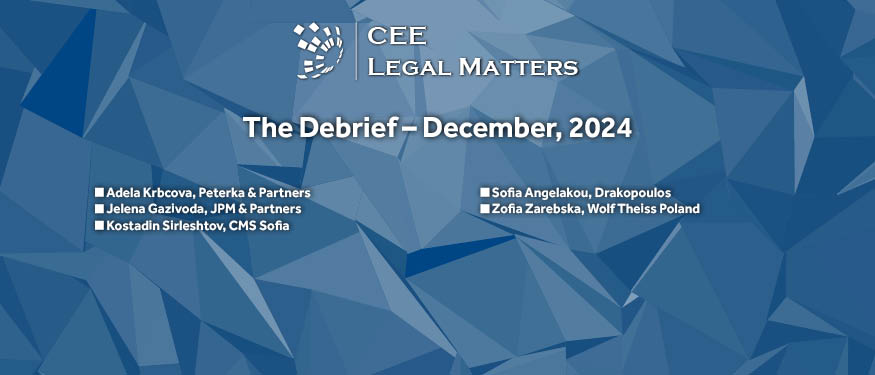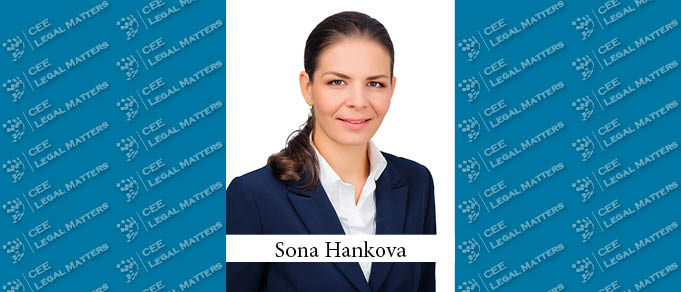CMS has advised K&H Bank on the refinancing of the solar portfolio consisting of Obton Group PV plants situated on 15 different locations across Hungary, with a total installed DC capacity of 71.107 megawatts. Forgo, Damjanovic & Partners reportedly advised Obton Group.
CMS, Kinstellar, and White & Case Advises on D4 Highway PPP
CMS has advised the Via Salis consortium, comprising Vinci and Meridiam, on the D4 highway public-private partnership project in the Czech Republic. Kinstellar, working with Linklaters, advised the financing banks. White & Case advised the Ministry of Transport of the Czech Republic.
TGS Baltic Advises Helix Kapital on Sale of Shares in Spring Media Group to Two Circles
TGS Baltic, working with Vinge, has advised Helix Kapital on the sale of its shares in the Spring Media Group to Two Circles. The transaction also involved a buyout of local minority shareholders in SIA 4.vara who were advised by TGS Baltic and CMS' Stockholm office. Sorainen and Latham & Watkins reportedly advised Two Circles.
CMS Advises Toshiba on Chaira Hydro Complex Repair and Rehabilitation Agreement
CMS has advised Toshiba International on a repair and rehabilitation agreement with the Bulgarian state-owned National Electricity Company for the pumping storage hydro power plant Chaira Unit 1.
CMS Advises COBI on Sale of 40% Stake to Resource Partners
CMS Poland has advised COBI and its founder on the sale of a 40% stake to private equity fund Resource Partners. Baker McKenzie reportedly advised Resource Partners.
Closing: MidEuropa's EUR 1.3 Billion Sale of Profi to Ahold Delhaize Now Closed
On January 3, 2025, RTPR announced that MidEuropa's EUR 1.3 billion sale of Profi to Ahold Delhaize (as reported by CEE Legal Matters on November 1, 2024) has now closed.
CMS Advises ABB on Investment in ESS
CMS has advised ABB on its investment in Engineering Software Steyr.
The Debrief: December, 2024
In The Debrief, our Practice Leaders across CEE share updates on recent and upcoming legislation, consider the impact of recent court decisions, showcase landmark projects, and keep our readers apprised of the latest developments impacting their respective practice areas.
CMS and Norton Rose Fulbright Advise on Stock Polska's 57,000-Square-Meter Lease in 7R Park Lublin East I
CMS has advised Stock Polska on leasing 57,000 square meters of warehouse space at 7R Park Lublin East I. Norton Rose Fulbright advised 7R.
CMS and DLA Piper Advise on Tozsdepalota's Sale of Tozsdepalota Building to Granit Asset Management
CMS has advised Tozsdepalota on its sale of the Tozsdepalota Building. DLA Piper advised the buyers, Granit Asset Management.
CMS and Bird & Bird Advise on Egis' Acquisition of Dermatological Product Line from Teva
CMS has advised Egis Pharmaceuticals on its acquisition of a dermatological product line from Teva Pharmaceutical Industries. Bird & Bird reportedly Teva.
The Corner Office: Conference, Anyone?
In The Corner Office, we ask Managing Partners at law firms across Central and Eastern Europe about their backgrounds, strategies, and responsibilities. As sunny days recede, the fall conference season is upon us, so we asked: How do you determine which Partner attends which events?
Croatia: New Round of Changes to Tax Rules in 2024
In 2024, Croatia introduced another round of changes to its tax rules, with further novelties announced for 2025 aimed at fair taxation of property and bringing order to the residential rent market.
A&O Shearman and CMS Advise on Immobel's Sale of Cloud One Gdansk Hotel to Invesco Real Estate
A&O Shearman has advised Immobel on the sale of the Cloud One Gdansk hotel in Poland to Invesco Real Estate. CMS advised Invesco Real Estate.
Redcliffe Partners and CMS Advise on EBRD and IFC's USD 435 Million Financing for Lifecell and Datagroup-Volia Merger
Redcliffe Partners, working with Clifford Chance and George Yiangou, has advised the European Bank for Reconstruction and Development and the International Finance Corporation on the USD 435 million financing for the merger of Lifecell Group and the Datagroup-Volia Group (reported on by CEE Legal Matters on September 17, 2024). CMS, working with Chrysostomides, advised the borrowers.
Slovakia Trying To Consolidate Its Books: A Buzz Interview with Sona Hankova of CMS
A tax reform, updated labor costs, and ESG compliance challenges are some of the main challenges facing businesses in Slovakia at the moment, according to CMS Partner Sona Hankova.
Gide and CMS Advise on Frey's EUR 50 Million Loan from BNP Paribas Bank Polska
Gide Warsaw has advised Frey on obtaining a EUR 50 million loan from BNP Paribas Bank Polska for refinancing the Matarnia Retail Park in Gdansk, Poland. CMS advised BNP Paribas.
CMS Advises on Formation of Wattwise FlexCo
CMS has advised Florian Prasky on co-founding with Katharina Porenta Wattwise FlexCo.



















